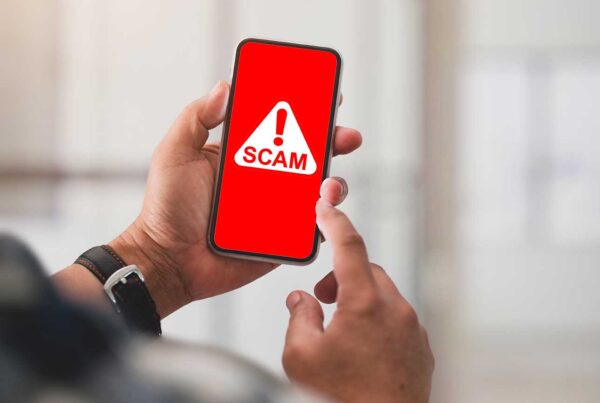The Federal Trade Commission (FTC) reported that prizes, sweepstakes, and lotteries; internet services; and business and job opportunities rounded out the top five fraud categories, but there are many, many more and each one may look just a little different.
While you may not always know every single scam that’s out there today (and let’s face it, there are many!), there are ways to protect against any kind that comes your way with some good rules of thumb.
Always:
- Use free banking tools to help you protect yourself. These can range from setting up login and other account alerts to setting up a code word on your account. The code word is a secret word or phrase that only you and your credit union know or have a record of, and if you don’t know it, you’re not getting access to your funds. Be sure you have it written down in a super-secret place so nobody else can gain access to your account unknowingly.
- Doublecheck info you are receiving from a potential scammer. Think your family is in danger overseas? Being held for ransom? Or your priest is asking you for some gift cards to help the homeless? Whatever it is, put on your private investigator hat and reach out to those people and ask if it’s true. Be sure to carefully look at the email address from suspicious emails. Scammers are exceptionally good at inserting the name of someone in your contact list into the “name” section of the email, but if you look closely, you will notice that it doesn’t have the correct email address of your contact. Sneaky scammers!
- Use the power of credit reporting agencies to help you. If you have credit cards, then you should already be checking your credit and credit score regularly (annually at the very least) using one of the big three credit reporting companies (Experian, Equifax or TransUnion). In fact, the government makes it easy for you to do this by allowing each person one free credit report every year. Each of these companies provide consumers with flexible ways to protect themselves against fraud by allowing you to freeze your credit cards when not in use. When frozen, scammers can’t get access to your cards, and you will be notified if someone tries.
- Educate your entire family (and extended family) about scams. Don’t assume that your kids are being taught about scams in school, or that grandma and grandpa know what they should and shouldn’t do. The FTC reported that more than $2.3 billion of losses in 2021 were due to imposter scams—up from $1.2 billion in 2020. Grandma and grandpa may be more susceptible to scams involving fake family members (and even computer repair scams!) so help them understand what they should do if something smells fishy.
Never:
- Never give your banking information up via email, text or phone to someone you don’t know. Important banking information includes account numbers, PIN numbers, passwords and pass phrases. If you feel compelled to give money to someone (who potentially could be a scammer), call us at Verve and we can help you verify the request and help you send money if it is warranted.
- Never keep your purse, wallet or other financial documents in an unlocked car. Scammers know that many people leave their purses and wallets in their cars out of convenience. That’s why 9% of all break-ins originate in the garage. Keep all garage access doors locked and deadbolted but still bring purses and wallets inside for extra protection.
- Never pay by unusual methods. If a scammer asks you to pay by gift cards or bitcoin, all sorts of sirens should begin going off in your head! Gift cards? Really? Never. Reserve gift cards for holidays, birthdays and other gifts, but never for payments of any other kind. Large companies and government agencies would never request this kind of payment from you. Additionally, never use person-to-person apps to pay people you don’t know and trust. Cybercriminals are very skilled at hacking into social media networks and may be posing as a friend or connection to swindle you out of your money.





 Federally Insured by NCUA |
Federally Insured by NCUA |  Equal Housing Opportunity |
Equal Housing Opportunity |